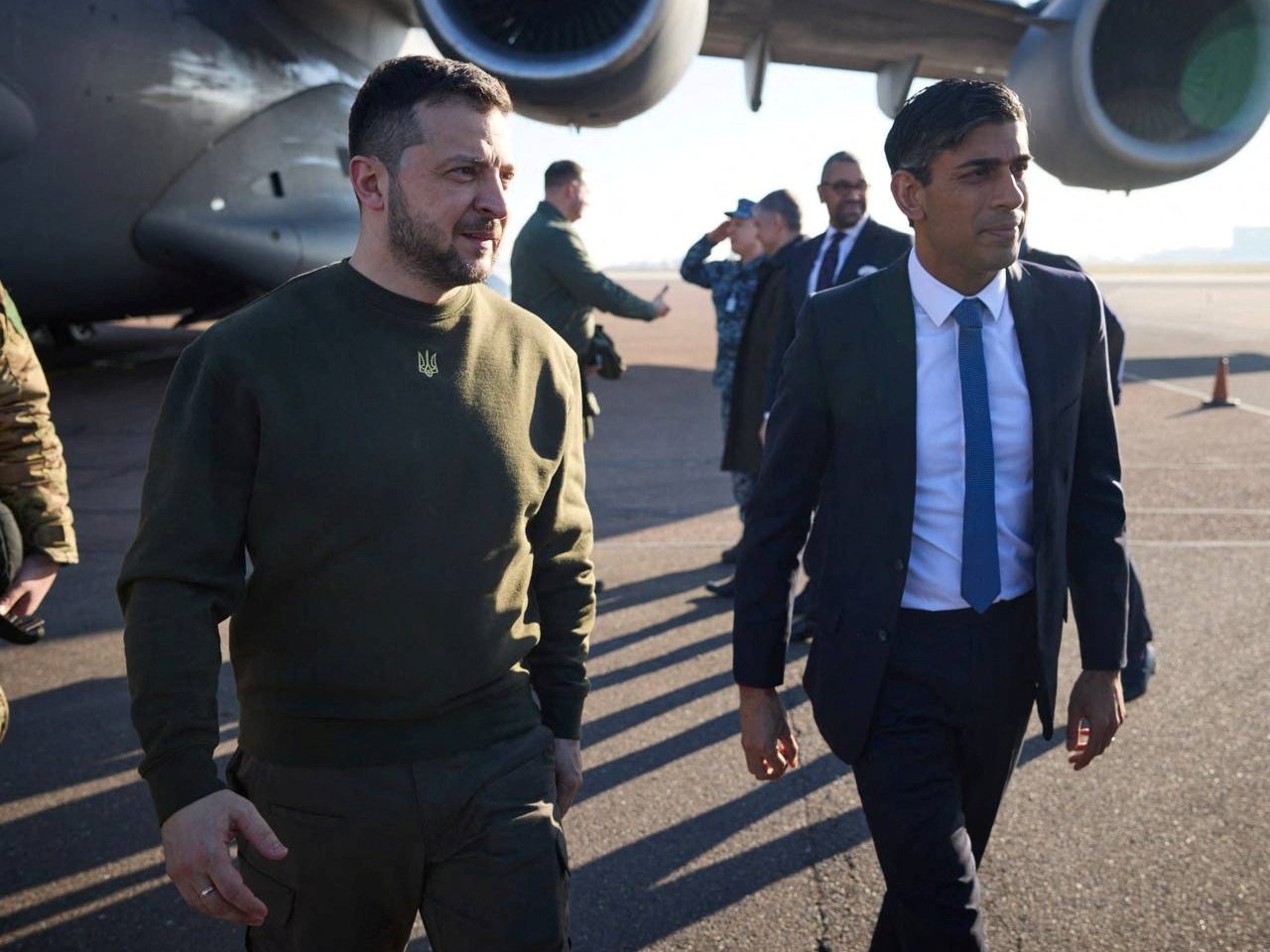
Chris Lange, FISM News
[elfsight_social_share_buttons id=”1″]
Ukrainian President Volodymyr Zelenskyy arrived in London this morning where he will address Parliament and meet with the prime minister as the United Kingdom vows to increase deliveries of “lethal aid.”
The visit is Zelenkyy’s second known international trip since the Russian invasion following his December trip to Washington, D.C.
British Prime Minister Rishi Sunak said in a statement released on Tuesday that Zelenskyy’s visit underscores the U.K.’s “unbreakable friendship” with Ukraine.
Ahead of Zelenskyy’s visit, Sunak’s office announced the imposition of additional sanctions on Russia as well as an expansion of its training of Ukrainian forces that will include, for the first time, instruction on the operation of fighter jets that the West has so far been reluctant to provide.
“The training will ensure pilots are able to fly sophisticated NATO-standard fighter jets in the future,” according to the statement, which did not include a specific timeframe as to when the training will take place.
The announcement is indicative of the ongoing shift away from the West’s former non-escalatory posture with Russia, coming on the heels of a dramatic scale-up in military support for Ukraine since the beginning of the year that has included high-tech combat tanks and U.S.-supplied, longer-range missiles capable of striking behind enemy lines. Still, Kyiv has not relented in pressuring its allies for warplanes.
The United States and Britain have both denied any intent to send their own fighter jets to Ukraine, but other nations have kept the door open to the possibility in a way that hints at a future collective decision from the West to do just that. Several NATO countries, for example, possess U.S.-made F-16 fighter jets coveted by Ukraine and would only need Washington’s approval to send them to Kyiv. This sort of back-door approach would give Kyiv what it wants while allowing the U.S. to avoid direct involvement.
The European Union extended an invitation to Zelenskyy to attend a summit of the 27-nation bloc that kicks off Thursday in Brussels. Ukraine’s presidential office, which remains extremely guarded in revealing Zelenskyy’s whereabouts, has not indicated whether or not he will accept the offer.
Zelenskyy has been drumming up more military support ahead of an anticipated new Russian offensive as the war approaches its one-year mark on Feb. 24. Russia suffered several humiliating battlefield defeats in the second half of 2022 but has gradually recovered some of its momentum, particularly with its hard-won capture of Soledar in Ukraine’s industrial Donbas region largely credited to Russia’s Wagner Group fighters. Both Ukrainian and Western intelligence officials have noted a major uptick in newly mobilized Russian forces, with reports ranging from tens to hundreds of thousands of amassed troops spotted near the front lines and along the Russia-Ukraine border.
Kyiv has continued to highlight the troop movement as evidence that Moscow is planning “something big” to mark the first anniversary of the war Russian President Vladimir Putin once described as a short-term “special military operation.”
“They need to have something to show before their people and have a major desire to do something big, as they see it, by this date,” Ukraine’s national security chief Oleksiy Danilov told Reuters on Tuesday in an interview.
He predicted Russia, which has focused lately on the Donetsk region in the east, would try new attacks on Kharkiv to the north or Zaporizhzhia further south, both of which have been targeted by ongoing Russian shelling and airstrikes.
“How successful they’ll be will depend on us,” Danilov added.
